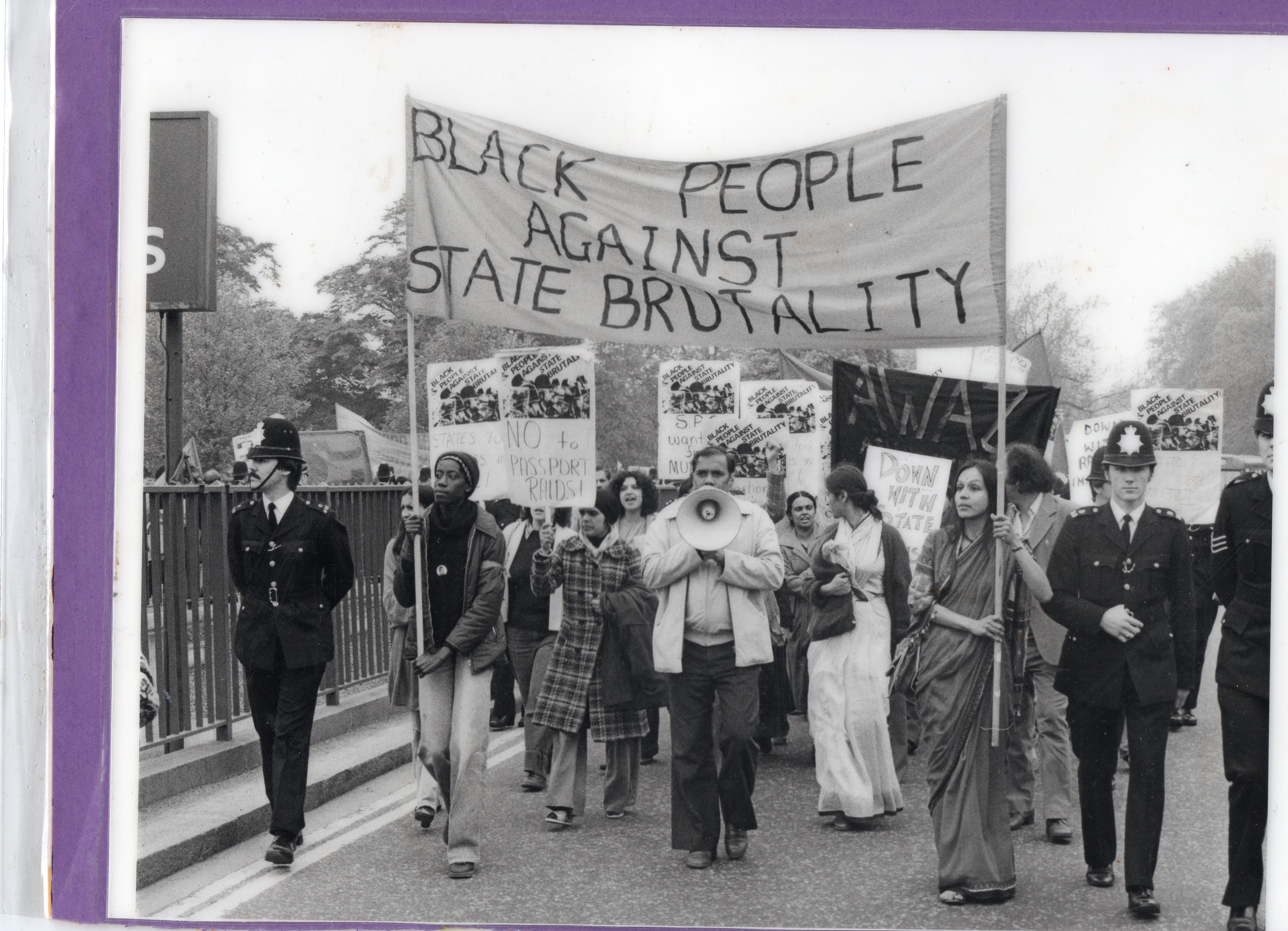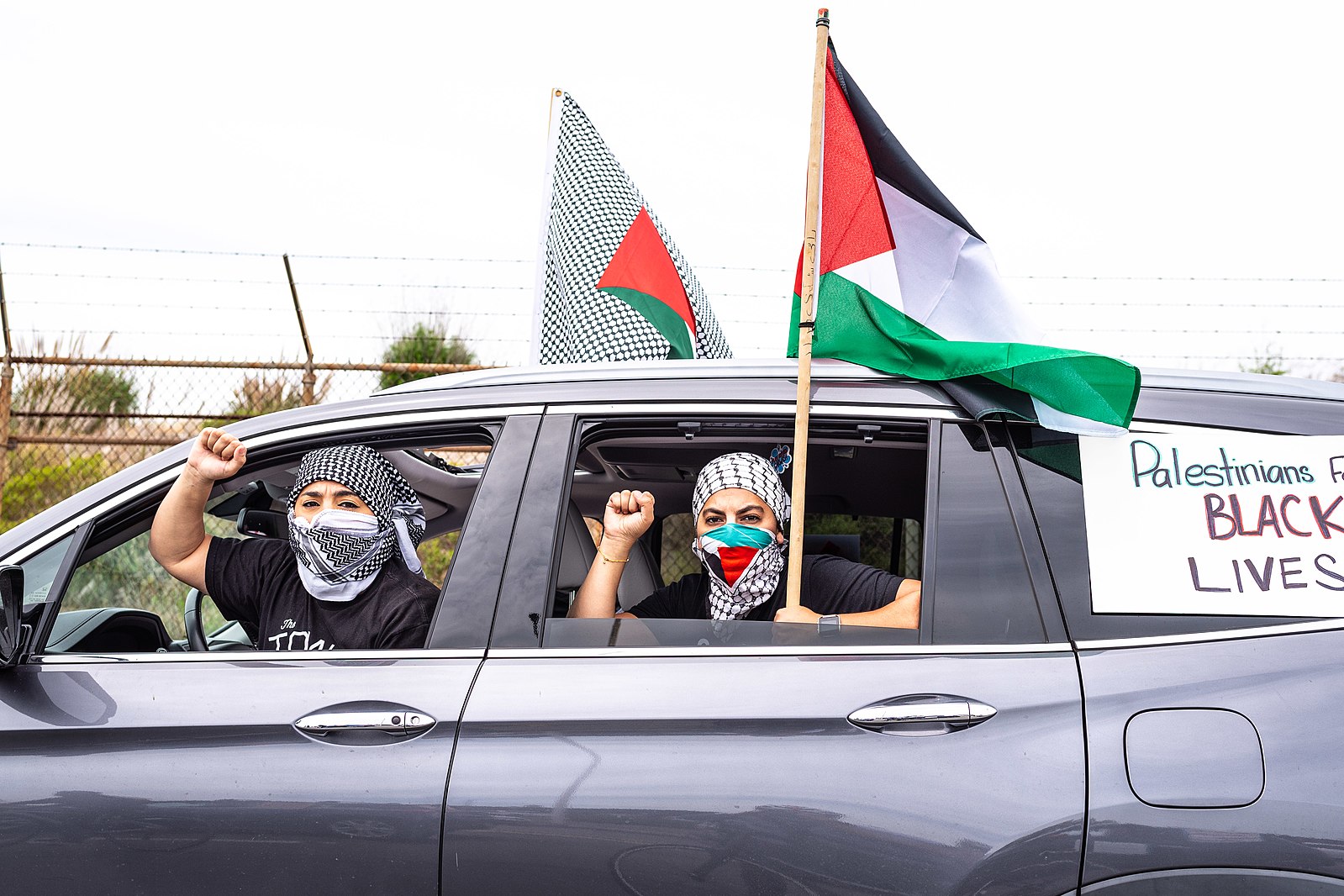
‘Reclaiming our collective past’: Amrit Wilson reflects on 40 years of anti-racist feminist work
Sophia Siddiqui
30 Oct 2018
Image reproduced by kind permission of Amrit Wilson
In 1979, Awaz – the first feminist Asian women’s collective in the UK – co-organised a massive national demonstration against police brutality, in collaboration with Brixton Black Women’s Group and the Indian Workers’ Association GB. Also in 1979, and alongside OWAAD (the Organisation of Women of African and Asian descent), Awaz organised a powerful picket at Heathrow airport, protesting the horrific “virginity tests”, which some migrant women were being subjected to by immigration services upon arrival to the UK. These historical moments demonstrate how black and Asian women have come together to fight racism.
I sat down with Amrit Wilson, a writer and activist who has consistently challenged the racism and sexism that Asian women face, in the UK and beyond, since the 1970s. “There is a real need for solidarity between people like us of South Asian origin and people of African origin – because of our history of imperialist exploitation which is still continuing, and because of the racism we face”, Wilson tells me.
With a fifty-four year age gap between us, the conversation is fascinating as we reflect on what has changed from her generation to mine, and the need for unity across communities and generations. She reflects that “these continuities and contradictions are enormously important to look at as a way for us to become strong ourselves, to face the world.”
In 1978, in response to institutional racism and a heightened awareness of gender inequality, Wilson wrote Finding a Voice: struggles of south Asian women. Finding a Voice, which was re-published this month, was the first text to document Asian women’s resistance to gendered racism. The voices of South Asian women form the bedrock of the book. Wilson explains: “they invited me into their homes, fed me, told me their stories, asked me about my own life, embraced me as a sister”. The book gives the reader a sense of being amongst, listening to and speaking with a community of Asian women, in a space where we can honestly articulate the things that we’re usually unable to say out loud. The book documents reflections on shame and guilt, oppressive family relations, abuse and racism. “These are the facts of my life, words from my gut. Tell them but keep my name a secret”, one interviewee tells Wilson in the book.
Remembering these often-overlooked episodes of resistance gives us a historical backdrop to our activism. In Wilson’s words, “if we remember our rich collective past, we will find ourselves stronger in battles ahead”. The 1976-77 strike at the Grunwick photo processing plant, led by Jayaben Desai is today once again an inspiration for many exploited migrant women. Campaigns against deportations in the ‘70s are continued today by people such as the Stansted 15, who grounded a chartered flight in March 2017, and are facing charges for their actions. The battles Awaz fought to convince people of the need to set up the first Asian women’s refuge in London are sustained today by women like Zlakha Ahmed MBE, who continues to fight for funding to sustain Apna Haq, a support service for Black and Minority Ethnic (BME) women escaping overcoming domestic and sexual violence in Rotherham.
These connections between past and present struggles are included in a fascinating new chapter in the reissued book, In conversation with Finding a Voice: 40 years on, in which young South Asian women describe what the book means to them today.
“For me, the last chapter is the most exciting chapter in the book”, Wilson tells me, “it’s a very important chapter because it shows the ways things have changed, up to a point, but also shows the ways struggles have continued, so in that sense it brings it full circle in a way which I could not have done. I was really quite bowled over, some of them were so moving, so powerful, so analytical.”
Amrit Wilson has worked extensively in the Violence Against Women and Girls (VAWG) sector, and she is currently the chair of Imkaan, an organisation dedicated to addressing violence against “Black and minoritised” women and girls. Writing and speaking out about domestic violence within the South Asian community is difficult, because the far-right, the media, and so-called feminists use sexual violence to push racist agendas, but it remains absolutely necessary. “Patriarchy is systemic and exists in all societies”, affirms Wilson, “if we remember that, it makes it far easier to understand and speak about violence against women in different communities.”
I came away from that brief meeting understanding that unity across community and intergenerational solidarity is so important, perhaps now more than ever. As Wilson added, “to understand the oppression that a woman faces and how patriarchy functions, you need to understand the history and the dreams of the women that went before because that gives you strength”. Finding a Voice is a powerful documentation of the upheavals that Asian women have endured, and by remembering and celebrating the struggles they won, we can continue to fight for the future we want.
Finding a voice: Asian women in Britain (New and Expanded Edition) is published by Daraja Press. There will be a book launch on 2 November 2018.









